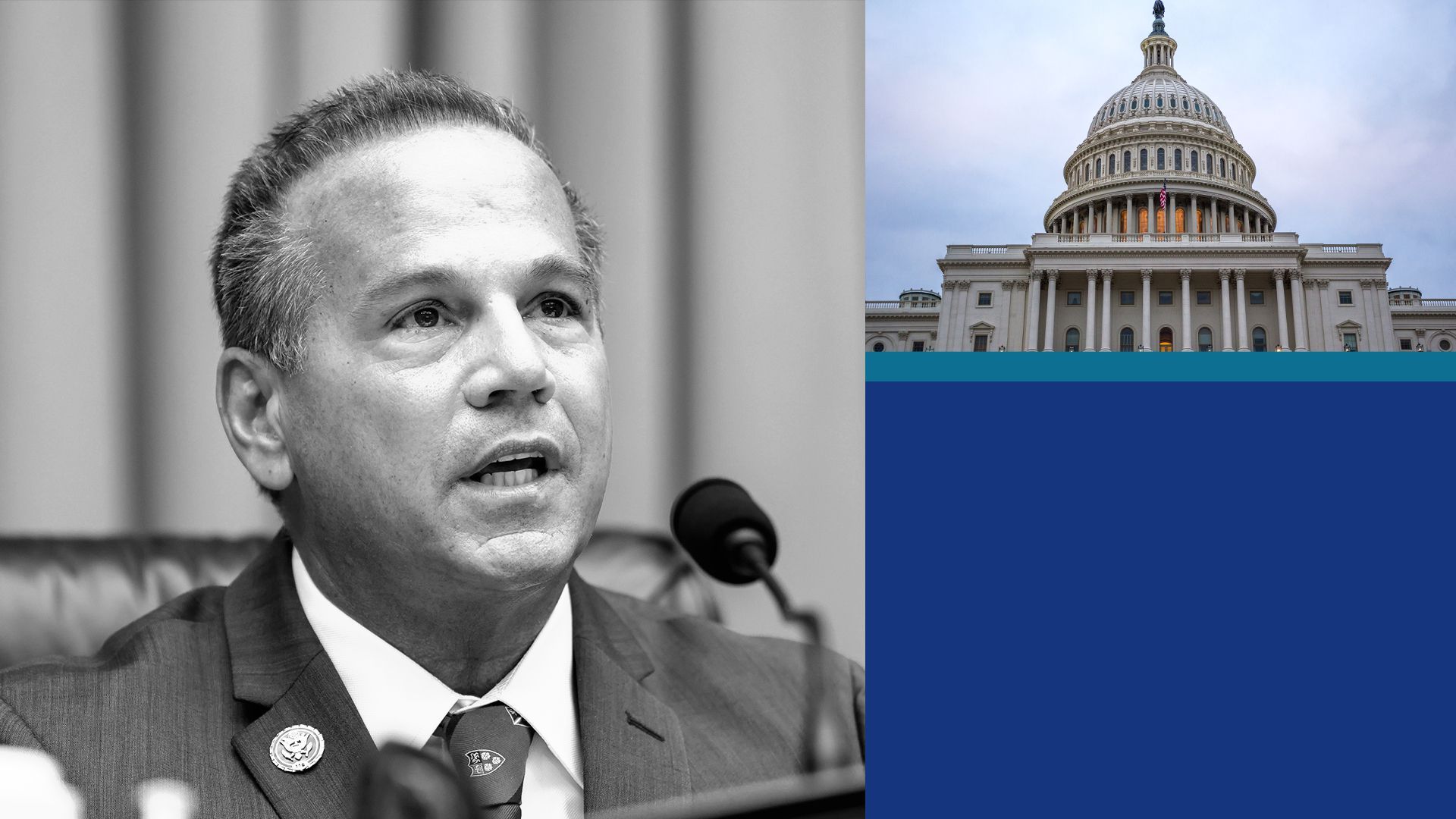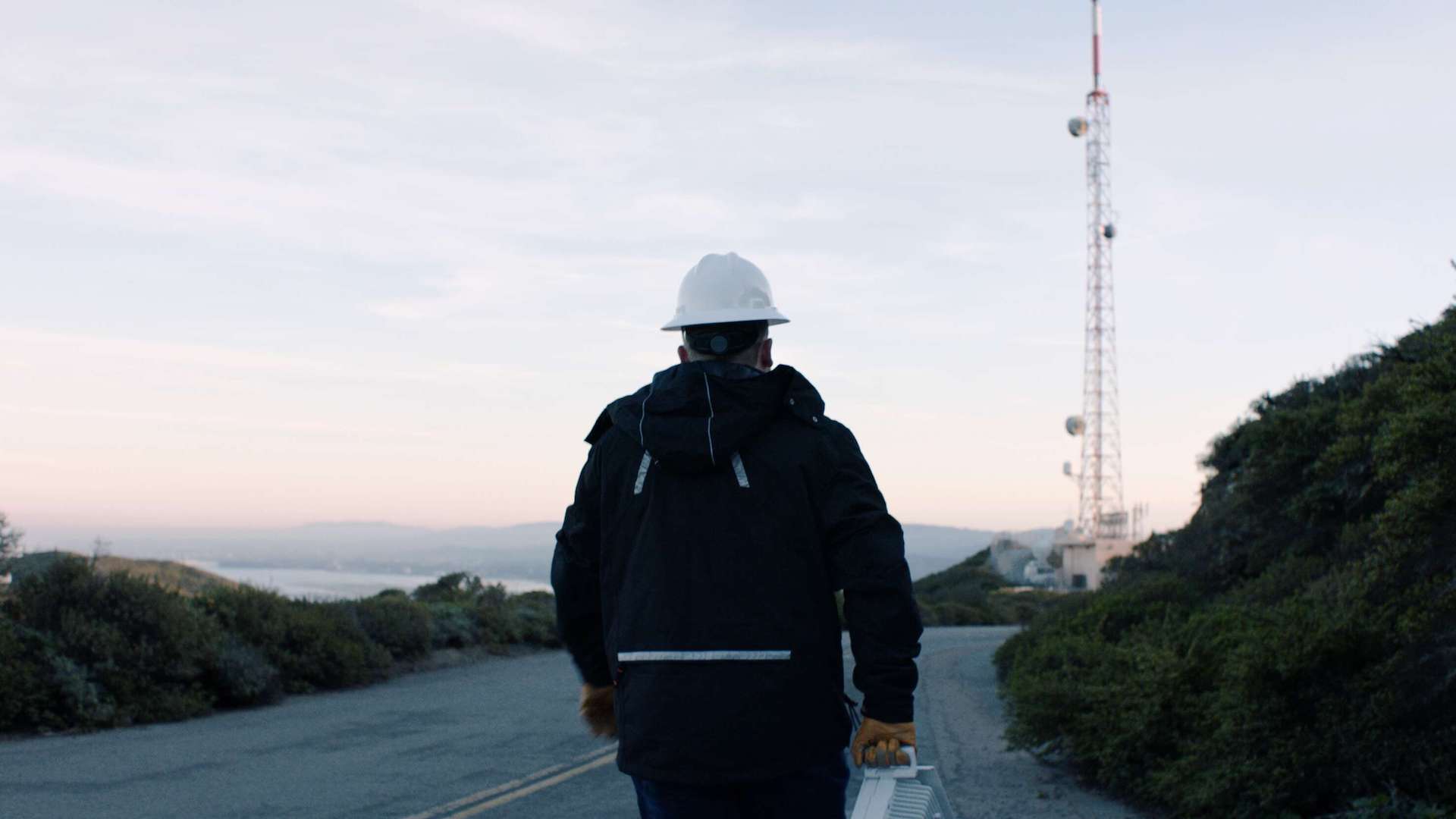| | | | | | | Presented By Ericsson | | | | Login | | By Ina Fried ·Mar 22, 2021 | | What do you mean you didn't have Oral Roberts beating Ohio State and later advancing to the Sweet 16? Just kidding, my men's bracket is busted, too. Fortunately, I am doing somewhat better with the women's bracket in the annual Login challenge. Also, it's great to be back, and thanks to Scott Rosenberg for filling in last week. Today's edition is 1,368 words, a 5-minute read. | | | | | | 1 big thing: Big Tech taps libertarian lifeline in D.C. |  | | | Illustration: Aïda Amer/Axios | | | | Tech companies bracing for increased scrutiny in Washington are leaning on their last friends in town — the libertarians, Axios' Margaret Harding McGill reports. Why it matters: Progressive liberals and populist conservatives alike are ramping up their attacks on the tech industry. The once-beloved darlings of Silicon Valley are scrambling to gain traction on Capitol Hill with the dwindling ranks of Republicans who still believe in laissez-faire, even for the tech industry. What's happening: Major tech companies have added prominent conservatives from the free-market world to their D.C. rosters in recent months. - Jesse Blumenthal is joining Apple after leading technology and innovation at Stand Together, an organization founded by Charles Koch.
- Billy Easley, a senior policy analyst for the Koch-linked Americans for Prosperity who also worked on the U.S. Sentencing Commission, recently was hired by Reddit.
- Mattie Duppler, an alum of the National Taxpayers Union and Americans for Tax Reform, joined Amazon last year.
- Facebook and Google also have relied on veterans of free-market circles. Google hired Max Pappas, a former aide to Sen. Ted Cruz (R-Texas) in 2017, while Facebook tapped former R Street Institute outreach director Lori Moylan the same year.
Yes, but: The tech companies are also eager to hire Democrats as they seek to position themselves for the new administration and congressional majorities. The big picture: The D.C. breed of libertarian who is against government intervention or regulation is fading fast among those in power in the Republican Party. - "I think you're seeing in part with the post-Trump right, a drifting away from the alliance with big business," said Zach Graves, head of public policy for the Lincoln Network, a conservative-leaning group focused on tech.
- In Washington, tech has largely aligned with Democrats over the past decade. But with the tech-lash, free-market types are more natural allies given their opposition to regulation or government intervention.
Between the lines: The number of lawmakers — on either side of the aisle — who believe nothing should be done to regulate tech companies is dwindling, so the companies have their work cut out for them. - The lobbying strategy of sharing talking points with like-minded groups, who then author op-eds or blogs for company lobbyists to in turn share with lawmakers and staff as proof of support, isn't effective in this environment.
- "The approach that tech companies have relied on for years — the justification for internet exceptionalism — is not influencing people on the Hill anymore," said Rachel Bovard, a former Senate aide now with the Conservative Partnership Institute.
|     | | | | | | 2. Inside the Democrats' strategy to bombard Big Tech |  | | | Photo illustration: Annelise Capossela/Axios. Photo: Graeme Jennings-Pool/Getty Images | | | | The powerful Democrat overseeing antitrust legislation wants to hit Big Tech with the legislative equivalent of a swarm of drones rather than a single, hulking battleship that would be simpler to defeat, Axios' Jonathan Swan and Margaret report. Driving the news: In an interview with Axios on Sunday, Rep. David Cicilline (D-R.I.) said he didn't want to give the major technology companies and their armies of lobbyists the easy target of a massive antitrust bill. - Instead, in his role running the House Judiciary Committee's antitrust panel, he plans to craft a series of smaller bills — perhaps 10 or more — that will be ready in May.
Why it matters: The way Cicilline sees it, this small-target strategy achieves two goals: - He has a better chance of finding common ground between Democrats and Republicans on more narrowly targeted issues.
- And he makes it harder for Amazon, Facebook, Apple and Google to mobilize quickly against reforms they don't like.
Between the lines: "If you look at the way these technology companies have staffed up with their lobbying and the money they're investing in Washington, it's designed ... to prevent any changes to the current ecosystem that benefits them enormously," Cicilline told Axios. - "They have literally billions and billions and billions of reasons to try to protect the current system because it produces ... profits not seen on planet Earth."
- Recognizing this reality, Cicilline said his intention is to use this range of bills to advance all the recommendations in his panel's 450-page investigation into competition in the digital marketplace.
Big picture: "My strategy is you'll see a number of bills introduced, both because it's harder for (the tech companies) to manage and oppose, you know, 10 bills as opposed to one," Cicilline said. - "It also is an opportunity for members of the committee who have expressed a real interest or enthusiasm about a particular issue, to sort of take that on and champion it."
Behind the scenes: Outside of his antitrust work, Cicilline also is readying a proposal taking aim at online companies' key protection against liability from users' posts, Section 230 of the Communications Decency Act. - Cicilline said his proposal, which is in the early stages, would focus on the decisions companies like Facebook make to amplify content that's posted by users.
- "That's a very complicated algorithm that is designed to maximize engagement to drive up advertising prices to produce greater profits for the company," Cicilline said. "That whole set of decisions, one could argue, is different than the initial post. That's a set of business decisions for which, it might be quite easy to argue, that a company should be liable for."
The bottom line: Cicilline says he is optimistic the Biden administration will be a partner in the work on antitrust, and that tech companies are wrong if they think the pandemic has brought them a reprieve from government action. - "Frankly, the pandemic in many ways made the market dominance of these technologies companies even greater and has demonstrated the monopoly power they have," Cicilline said.
|     | | | | | | 3. Tim Cook, other Apple execs to testify in Epic trial | | Apple CEO Tim Cook and other top Apple executives are expected to be among the witnesses when a trial begins in the company's legal battle with Fortnite creator Epic Games, according to an initial witness list Apple released late Friday. Why it matters: The lawsuit is with Epic, but at stake is Apple's way of doing business in the App Store, including its 30% cut and requirement that developers use only Apple's in-app payment system for digital goods. Details: - Among Apple's witnesses are Cook, software chief Craig Federighi, and longtime marketing chief and current Apple fellow Phil Schiller,
- Epic CEO Tim Sweeney is also expected to testify, along with operating chief Daniel Vogel and marketing VP Matthew Weissinger.
- The trial is set to begin May 3 in federal court in Northern California.
Between the lines: Expect more fireworks as the trial draws closer and each side reveals information learned through discovery. - For Apple, which tends to like to keep nearly everything confidential, lawsuits often provide a unique window into the company's day-to-day operations, as was the case during its years-long battle with Samsung.
Yes, but: Some of the juiciest confidential info is often redacted. |     | | | | | | A message from Ericsson | | Ericsson investing in America's 5G future | | |  | | | | Ericsson helps the U.S. build 5G infrastructure. We've invested over $100 million in our 5G smart factory where equipment powering the nation's 5G networks is assembled. The factory shows how 5G helps optimize processes and increase production with automation. Learn more at ericsson.com/us. | | | | | | 4. Charted: The slow trudge back to the office |  A little more than a year after social distancing started in the U.S. — and months after vaccinations began — the vast majority of workers still have yet to return to the office, as Axios Future's Bryan Walsh reports. Why it matters: Both employers and workers will need to feel safe before a large-scale return to the office is possible — and even then, the lure of remote work will remain. By the numbers: According to data from Kastle Systems — which operates security for thousands of buildings across the country — office occupancy is at just 25% in 10 major cities across the country for the week of March 15. - Differences between cities can mostly be mapped to coronavirus response measures, with Houston, Dallas and Austin at the top, while San Francisco and New York report the lowest occupancy levels.
Go deeper: The case for going back to the office |     | | | | | | 5. Take note | | On Tap - Y Combinator hosts a Winter Demo Day on Tuesday, while EmTech Digital runs Tuesday through Thursday.
Trading Places - Tracey Trewin is the latest person to depart Microsoft for Magic Leap, joining as chief product officer, as GeekWire noted. Peggy Johnson last year left her role as a top M&A executive at Microsoft to become CEO of the mixed reality startup.
ICYMI - Qualcomm CEO Steve Mollenkopf said that he is "seeing improvement" with regard to the chip industry's response to a global shortage. (Reuters)
- YouTube star David Dobrik is stepping away from photo app Dispo. (Axios)
|     | | | | | | 6. After you Login |  | | | Image: HarperCollins | | | | I've been reading through an early copy of a fascinating book from Jennifer Armstrong, an old journalism friend. The book, "When Women Invented Television: The Untold Story of the Female Powerhouses Who Pioneered the Way We Watch Today" details the little-known stories of women who played prominent roles in television's earliest days. - While I knew about Lucille Ball and Betty White, I had never heard about radio star Gertrude Berg who practically insisted that her Jewish family comedy be given a chance on TV. Nor had I heard about musician Hazel Scott, the pioneering African American host of a national variety program.
|     | | | | | | A message from Ericsson | | 5G will transform the U.S. economy | | |  | | | | 5G growth will be a major driver of American prosperity and economic growth. It will be a platform for a rejuvenated economy with the potential to create 4.5 million jobs and $1.5 trillion in economic growth. Learn more about how 5G will bring economic advancement. | | | | | | Axios thanks our partners for supporting our newsletters.
Sponsorship has no influence on editorial content. Axios, 3100 Clarendon Blvd, Suite 1300, Arlington VA 22201 | | | You received this email because you signed up for newsletters from Axios.
Change your preferences or unsubscribe here. | | | Was this email forwarded to you?
Sign up now to get Axios in your inbox. | | | | Follow Axios on social media:    | | | | | |








No comments:
Post a Comment